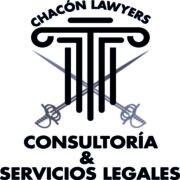Best Tax Increment Financing Lawyers in Colombia
Share your needs with us, get contacted by law firms.
Free. Takes 2 min.
Or refine your search by selecting a city:
List of the best lawyers in Colombia
About Tax Increment Financing Law in Colombia
Tax Increment Financing (TIF) is a public financing method used as a subsidy for redevelopment, infrastructure, and other community-improvement projects in Colombia. It leverages future increases in property tax revenues to fund current improvements, theoretically resulting in a boost in the economic prosperity of underdeveloped or distressed areas. The Colombian government employs TIF to encourage private investment in these zones, enhancing urban development and increasing property values.
Why You May Need a Lawyer
Engaging with Tax Increment Financing can be complex due to the legal and financial intricacies involved. Here are common situations where legal expertise may be beneficial:
- Project Development: Understanding contractual obligations, compliance with local regulations, and negotiating terms with developers.
- Financing Details: Structuring the financing in a manner that aligns with TIF guidelines and requirements, including tax implications.
- Legal Compliance: Ensuring that the project adheres to Colombian and local laws concerning TIF.
- Dispute Resolution: Managing conflicts that arise from contracts or implementation phases, requiring mediation or legal intervention.
- Public and Private Partnerships: Facilitating communication and agreements between public entities and private investors.
Local Laws Overview
In Colombia, TIF laws are part of broader sustainable urban development and fiscal policies. The key elements include:
- Economic Development Zones: These are specific areas identified by the government for TIF projects to enhance urban development.
- Tax Revenue Allocation: TIF projects critically depend on managing future tax revenues, necessitating adherence to fiscal policies.
- Project Approvals and Regulation: Each project must be approved by relevant municipal authorities and must comply with regulations regarding urban development and finance.
- Community Involvement: TIF projects often require stakeholder engagement and the demonstration of clear benefits to the local community.
Frequently Asked Questions
What is the primary purpose of Tax Increment Financing in Colombia?
The main goal is to incentivize development in economically distressed areas by funding necessary improvements through anticipated future tax revenues.
How does TIF impact local communities?
TIF can revitalize communities by increasing property values, stimulating business investment, and improving infrastructure, though it must carefully balance the interests of existing residents.
Who typically initiates a TIF project?
Usually, local governments initiate TIF projects in partnership with private developers or investors focused on community improvement.
What are common risks associated with TIF?
Risks include inaccurate revenue projections, delays in project completion, or failure to increase property values as expected, potentially leading to financial shortfalls.
How are TIF funds usually utilized?
Funds are typically used for public improvements such as roads, utilities, parks, and sometimes public buildings which aid in making the development area more attractive to private investment.
Can TIF be used for public projects only?
No, while TIF is often used for public infrastructure, it can also fund private development projects that contribute positively to economic growth in the targeted area.
What is the duration of a TIF project?
In Colombia, TIF projects typically range from 10 to 30 years, varying based on the specific terms of the project and local governmental agreements.
Are there specific eligibility criteria for areas to qualify for TIF?
Yes, areas are usually selected based on criteria such as economic distress, need for urban renewal, and potential for increased property value and tax revenue.
How does TIF affect property taxes?
Property taxes in a TIF district may remain stagnant or rise slower than the redeveloped area's value, with incremental increases diverted to fund the development projects.
Is public input required in TIF project development?
Yes, public consultations or community feedback sessions are part of the approval process to ensure the project's acceptance and success.
Additional Resources
Individuals seeking further information on Tax Increment Financing in Colombia may find the following resources useful:
- Colombian Ministry of Finance: Offers guidelines and policies regarding fiscal responsibilities and TIF deployments.
- Local Government Urban Development Offices: Provide insights and details on current and upcoming TIF projects in municipal areas.
- Chambers of Commerce: Often hold resources and support for businesses engaging in TIF projects.
- External Consultancy Firms: Various firms specialize in legal and financial guidance for large infrastructure and urban development projects.
Next Steps
If you require legal assistance with Tax Increment Financing, consider the following steps:
- Research Legal Experts: Identify legal professionals with experience in TIF projects and local Colombian laws.
- Schedule Consultations: Meet with potential lawyers to discuss your needs and their expertise.
- Prepare Documentation: Gather any relevant documentation regarding your interest in a TIF project, such as land ownership records, project proposals, or past communications.
- Understand Costs: Discuss legal fees and costs to determine whether they align with your budget.
- Engage Legal Representation: Once you’ve chosen a lawyer, formalize the engagement to receive guidance through the legal requirements of your TIF engagement.
Lawzana helps you find the best lawyers and law firms in Colombia through a curated and pre-screened list of qualified legal professionals. Our platform offers rankings and detailed profiles of attorneys and law firms, allowing you to compare based on practice areas, including Tax Increment Financing, experience, and client feedback.
Each profile includes a description of the firm's areas of practice, client reviews, team members and partners, year of establishment, spoken languages, office locations, contact information, social media presence, and any published articles or resources. Most firms on our platform speak English and are experienced in both local and international legal matters.
Get a quote from top-rated law firms in Colombia — quickly, securely, and without unnecessary hassle.
Disclaimer:
The information provided on this page is for general informational purposes only and does not constitute legal advice. While we strive to ensure the accuracy and relevance of the content, legal information may change over time, and interpretations of the law can vary. You should always consult with a qualified legal professional for advice specific to your situation.
We disclaim all liability for actions taken or not taken based on the content of this page. If you believe any information is incorrect or outdated, please contact us, and we will review and update it where appropriate.
Browse tax increment financing law firms by city in Colombia
Refine your search by selecting a city.
















